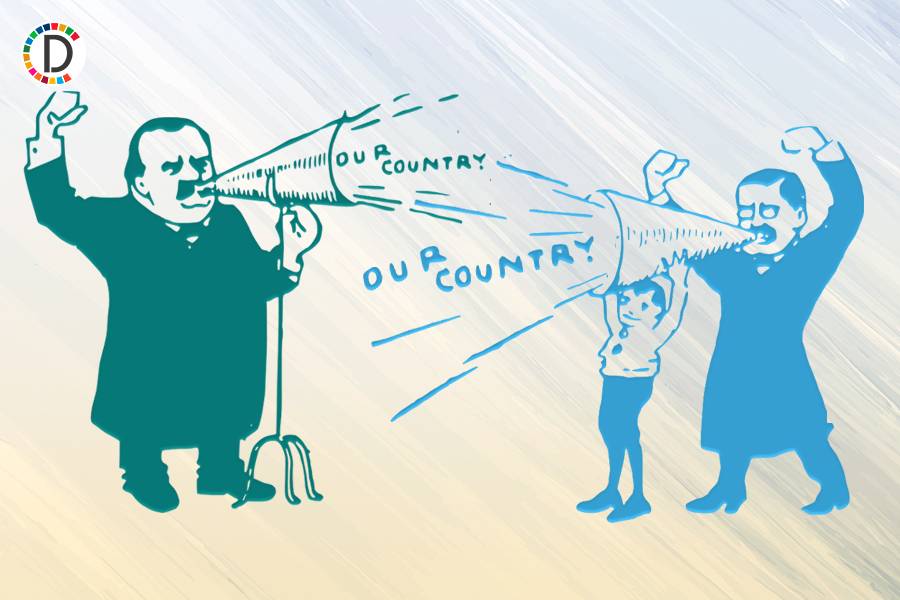ANC Navigates Coalition Talks Amid Political Uncertainty
The African National Congress (ANC) is in last-minute talks with various parties to form South Africa's next government after losing its majority in the recent election. The ANC, which has been in power since the end of apartheid, is aiming for a government of national unity, with potential involvement from parties like the Democratic Alliance (DA) and the Inkatha Freedom Party (IFP).

The African National Congress (ANC) was holding last-minute talks with other parties on Thursday to thrash out a deal to form South Africa's next government, as its secretary-general said it aimed to work with as many parties as possible. The broad parameters of a deal need to be agreed in time for the first convening of the newly elected parliament on Friday.
Addressing journalists after a meeting of top ANC officials in Cape Town, Secretary-General Fikile Mbalula said the party looked forward to the establishment of a government of national unity, but he declined to give detailed information about discussions the ANC had held with other political parties. "These are uncharted waters," he said.
The ANC, a former liberation movement that has been in power since the end of apartheid 30 years ago, lost its majority in a May 29 election that tipped the country into a state of political uncertainty unseen in the democratic era. Lawmakers are scheduled to convene on Friday in Cape Town to elect their speaker, deputy speaker and the country's president - putting pressure on the ANC and other parties to decide who will govern.
President Cyril Ramaphosa is expected to win a new term in office, but the composition of the new government remains unclear. The ANC said last week it favoured a broad-based government of national unity and was talking to parties ranging from the white-led, pro-business Democratic Alliance (DA) to its polar opposite, the hard-left Economic Freedom Fighters (EFF).
The clearest indication to date of who might have a seat at the table came from the Inkatha Freedom Party (IFP), which said on Wednesday it was prepared to join the ANC and DA in a governing alliance. The ANC remains the largest party, having won 159 out of 400 seats in the National Assembly. The DA is its nearest rival, with 87 seats, while the populist uMkhonto we Sizwe (MK) party led by former President Jacob Zuma has 58.
The EFF, led by former ANC youth leader Julius Malema, came fourth, winning 39 seats, and the IFP fifth with 17. FREE-MARKET POLICIES
If confirmed, a government involving the DA would be welcomed by big business and financial markets, which approve of its free-market policies. However, it would be unpopular with many ANC supporters who see the DA as a defender of the interests of the privileged white minority - a toxic issue in a country still processing the legacy of the racist colonial and apartheid eras.
A government including the DA would also preclude support from the EFF, as Malema's party and the DA are sworn enemies. "We have made it very clear to the president that we are not against the government of national unity; we are against the inclusion of the DA and the (far-right) Freedom Front Plus," Malema told journalists in Cape Town.
"The DA is our enemy," he said. For its part the DA has ruled out joining a government with the EFF, whose policies include seizing white-owned land and nationalising banks and mines.
Analysts say the inclusion of the IFP, a socially conservative party with an ethnic Zulu base, could help the ANC leadership by sweetening the DA pill for its grassroots supporters. (Additional reporting by Nellie Peyton, Tannur Anders, Bhargav Acharya and Alexander Winning Writing by Estelle Shirbon and Tim Cocks Editing by Frances Kerry and Alex Richardson)
(This story has not been edited by Devdiscourse staff and is auto-generated from a syndicated feed.)
ALSO READ
Historic Unity Deal: ANC and DA Join Forces in South African Politics
South African Politics: Ramaphosa Secures Second Term Backed by DA
Prashant Kishor Slams Nitish Kumar for Power Politics with Modi
"BJP pushed AIADMK to third position...in politics you need to fight": BJP leader Narayanan Thirupathy
From Social Media Stars to European Parliament Members: How Fidias and Alvise Revolutionized Politics










